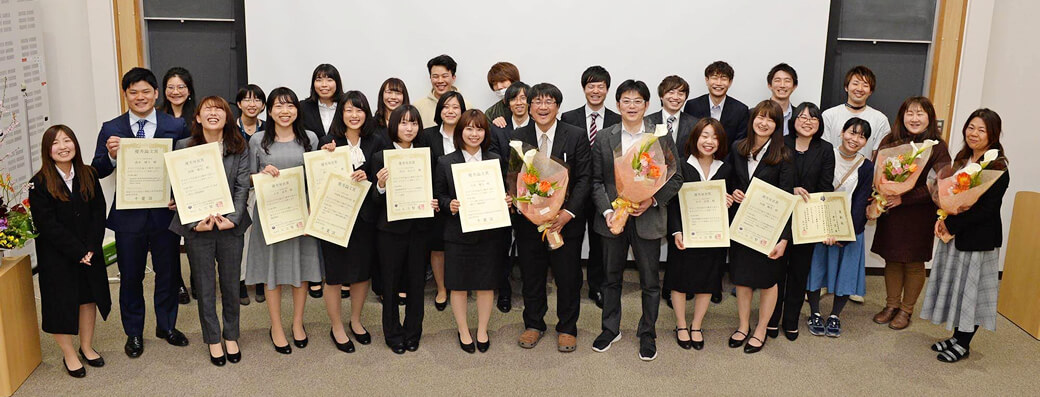
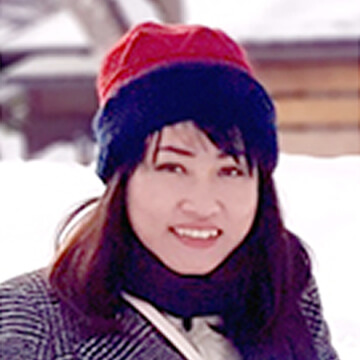
Nguyen Thi Ngoc Mai (Public Health Sciences)
Hi. I am Mai from Vietnam, currently belonging to the Epidemiology group. Can’t believe it’s been almost two years since I first set foot in here. People say time flies when you’re having fun, and yes indeed, choosing to study at the University of Tsukuba was the best academic decision I have made so far.
All started when I got a job as a hospital pharmacist. As my duty was to assist surgeons in selecting the right antibiotics, I sought out for guidelines and publications. While I admired the people who had wrote these helpful guidelines, a huge part of me always wondered which methodologies, which tools had been utilized to establish evidence, to answer clinical questions. I was hoping to continue study with the idea that someday, I would be able to conduct such research by myself. The opportunity came when I awarded the Japanese government (MEXT) scholarship to join Master’s degree program in Japan. I immediately decided to join the Public Health Science, Master’s Program in Medical Sciences at the University of Tsukuba.
The beautiful thing about Tsukuba is that the city is home of many major national/private research organizations, providing an excellent environment for networking and collaboration. The University of Tsukuba itself is a comprehensive institute, meaning that in case you need to learn a new skill or opinion from someone outside the field, you can just go and knock on the door next by.
This university has given me the opportunity to explore and grow both as an academic and as a person. Not only that the university had been provided me with essential skills and knowledge to conduct my own research, but also it brought me chances to work and meet with peers from all over the worlds. Some of these friends have been spending their time working to tackle global health problems. Their extraordinary stories had inspired me to think bigger, and to flourish personally. I am lucky enough to be a student of professor Wagatsuma, from whom expertise and critical thinking I have learned a lot. Her support and my lab members’ encouragement have made it possible for me to accomplish this journey.
Starting next year, I will continue my journey of pursuing Ph.D. in a different country. Tougher challenges await. More hard work, more effort will undoubtedly be needed. However, the University of Tsukuba has prepared me well, and I have the determination to excel in such a challenging environment.
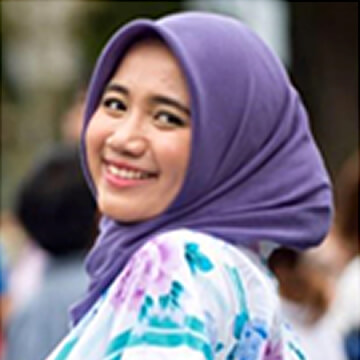
Meidi Utami Puteri (Medical Sciences)
Hello, my name is Meidi from Indonesia. I enrolled as Master’s Student in Medical Science on October 2014 then graduated on September 2016. I never thought that my decision to study abroad in University of Tsukuba leads me to the unforgettable journey in my lifetime. Those two years were the most colorful year in my life. I met interesting and motivating people who help, inspire, and encourage me a lot. I am grateful to have an opportunity working in the international environment with inspiring teachers and many friendly friends from several countries. I’ve learnt a lot of skills at University of Tsukuba. Compare to myself before I go to Japan, I found my self much better now. Not only my knowledge about molecular cancer biology increase, my experimental and laboratory skills also improve. Moreover, in this program they also gave us many chances to improve our English and Presentation Discussion skills through involving us in many scientific presentation and discussion session both at class and at laboratory. This program also offer us some overseas activity during holiday session which allow us not only to study but also to make new friends from other countries, exchange experiences, and having fun. And now I’m continuing my study to Doctoral Degree in Biomedical Science Program at the same laboratory because I still want to sharpen my knowledge about molecular cancer biology, gain more experiences, improve my soft skills especially in English Presentation and Discussion, and of course because I still feel happy being student in this university ^^
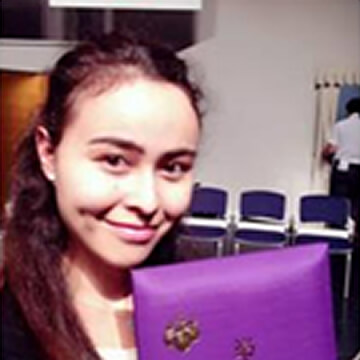
Xiafukaiti Gulibaikelamu (Medical Sciences)
I am from Urumqi, Xinjiang Uyghur Autonomous Region, China. I got my bachelor degree in animal biotechnology at Shanghai Jiao Tong University from 2009 to 2013 and my master degree in medical sciences at University of Tsukuba from 2013 to 2015.
When I was a kid, I have a dream about traveling around the world, especially the coastal areas. It might because I was born and live in the city, Urumqi, which is the farthest city from the sea in the world. The desire of go out and see the world become stronger and stronger as I grow older together with the love for the life science. Speaking of life science, I have to say that from the very first lesson of biology at junior high school, I was deeply fascinated by this amazing subject. That is why I choose animal biotechnology as my major at college, and most importantly the college I went is located in Shanghai which is the biggest coastal city in China. During my study time in Shanghai, I deeply realized that living in different city with different culture not only expend one’s horizon, but also improve the way of one’s thinking, and most importantly, the more advance the city in science and technology, there is a higher possibility to get high quality of education. As being a researcher in the field of life science and working in research institutions is my optimal goal, I decided to study abroad after my graduation from college. So here I am in Japan! So, why I choose University of Tsukuba to continue my study? When I was a senior at my collage 3 years ago, Professors from the the University of Tsukuba came to Shanghai Fudan University to introduce their International Graduate Program. After attending their lecture, I become interest in this program and start to searching for laboratories matching with my academic background and interest. Finally, I found out Laboratory Animal Research Center, which is managed by my current academic supervisor Professor Satoru Takahashi. The main interest of his research group is functional analysis of transcription factors in the body by employing developmental engineering techniques. So I contact with Professor Takahashi and start to apply for this program. After all, I was successfully admitted into his lab. During my 2 year master course in Frontier Medical Sciences Program, I deeply realized that I am at the right place to continue my study not only because of the academic environment of the university that helped me to gain more profound understanding towards basic medical research, but also because of the international environment that provide more opportunity to make friends from different culture with different cultural values to expend my horizon. That is why I am still continuing my study at University of Tsukuba after graduated from the master course. Now I am the first year PhD student in biomedical sciences.
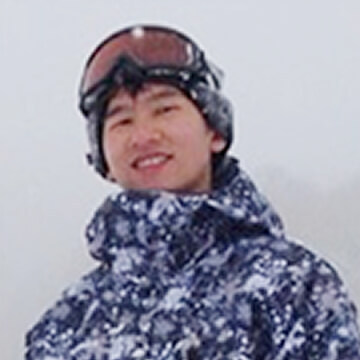
Rudy (Medical Sciences)
Hello, I am Rudy from Indonesia.
I enrolled in the Master’s program in medical sciences in October 2013 and completed it in September 2015. It was such a memorable 2-years program with lots of experience.
I have learnt many things from the basic of molecular biology to up-to-date drug development. In addition, we could enjoy a lot of attractive presentations while making some ourselves. Moreover, I also got a lot of advanced experimental techniques from my lab, which I think I could never learn enough. Furthermore, there are a lot of interesting international conferences and seminars which helped me understand the recent development in medical field.
With a lot of fun and helpful friends and lab members, I could enjoy my life to the fullest during my program in Japan and I’d like to thank them for that. In addition, the international environment provided by the school opened up my mind to look at my world from many different perspectives. This was such an eye-opening experience for me. Although there are some limitations in language, it was no big deal since most of them could communicate in English and we can also learn Japanese language through the program provided by international student center. In addition, we could join many cultural and sports activities which keep me entertained and healthy.
After graduating, I am now continuing the doctoral program in the same lab. I hope to learn and enjoy more, both the science and the play.
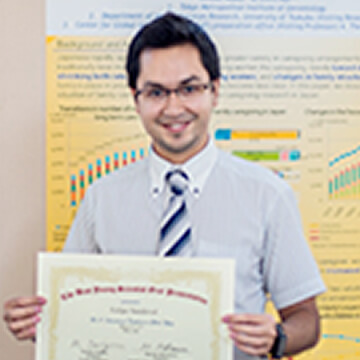
Felipe Sandoval (Public Health Sciences)
It is a pleasure to address people interested in continuing their academic career at the University of Tsukuba. My name is Felipe Sandoval. I am third-year student of the Doctoral Program in Human Care Science at the Graduate School of Comprehensive Human Care Sciences. I first came to the University of Tsukuba in 2009, after working for the Japan International Cooperation Agency (JICA) back in my home country, Chile, for nearly three years. A great part of the work we did at the Project Department of JICA Chile Office was related to the implementation and assessment of public policies. I wanted to deepen that knowledge by entering a post graduate certificate in world politics, which I finished early in 2009, and even more by studying a graduate course abroad. The first time I heard about the University of Tsukuba was when the subdirector of JICA Chile Office handed me a brochure of the university. Later I realised that the university has very good relationships with many governmental organizations, like JICA. In addition, many graduates of this university have very successful careers in many kinds of organizations, in the private and public sector, which turns out to be very convenient for your own career as well, as you get to know many people with similar interests and who share a common vision. The university has a good infrastructure and it is very conveniently located. Wide, green and calm spaces, perfect for you to study and concentrate, while located just one hour away from Akihabara in Tokyo. Living outside Tokyo has its benefits, in particular economic ones. It is indeed cheaper to live in Tsukuba than Tokyo, especially if you are living on a scholarship like me. I know many students who have trouble making their ends meet in Tokyo, but in Tsukuba you will probably never have that kind of problems. Also, the University of Tsukuba has very strong agreements with universities from around the world. I had the opportunity to visit England and the USA last year, and the possibilities of travelling increase every year, as the university keeps working on becoming more international. These efforts are seen in the number of programs taught in English, the professors willing to take the challenge of teaching in English, the foreign teachers hired, the materials prepared in English, and so on. With this in mind, I came to Tsukuba. I came as a research student in April 2009. A year later I joined the Master’s Program in Medical Sciences. In addition to the reasons I mentioned earlier on joining the University of Tsukuba, one of the most important reasons to choose this program was that it was recommended to me by Professor Nanako Tamiya. Professor Tamiya was a former JICA expert with whom I worked together in a project back in Chile. She is the head of the Department of Health Services Research in this university and had already accepted a Chilean student that was also a member of that project on behalf of the Ministry of Health in Chile. She introduced me to the Master’s Program in Medical Sciences. Besides her recommendation, the reasons to join the program are many and self-evident. One of them is that the program is in English, which makes the process of adaptation much easier and smooth. You can readily start studying the subject of your interest, instead of dedicating time to improve your Japanese, which takes a lot time to perfect to a graduate-level vocabulary anyway. Another reason is that it is a comprehensive and multidisciplinary program, where you get to meet people not only with a clinical background, but from a range of different fields, which makes your learning process much richer, as you get to know different viewpoints that, in the end, complement or improve yours. Finally, the students in this program are not only Japanese, but from many countries around the world. These different cultural perspectives make you think broadly and deeper into different challenges that are subject to study. I think this kind of dynamics is not common in academia and rarely seen in Japan and I have come to value it deeply. I truly believe it has changed my way of thinking. Now I tend to approach problems from a wider range of perspectives. This holistic view seems to be strongly attached to you once you graduate from this program and I cherish the opportunity of experiencing it here. After my graduation in March, I will move to Waseda University as a postdoctoral fellow. I was awarded this position by the Japan Society for the Promotion of Science after a competitive selection, where the possibility of success is usually less than 10 percent among candidates from around the world. However, the University of Tsukuba gives you the tools to compete with the best students from overseas, so rest assured that, once you graduate, every challenge can be met and every situation made better, so long as you remember what you will learn in Tsukuba.
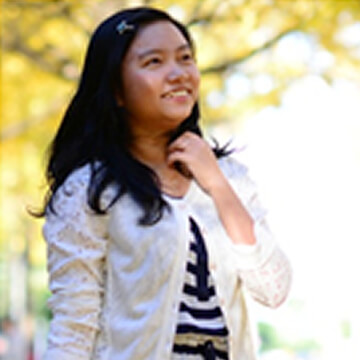
Vo Nguyen Thanh Thao (Medical Sciences)
Hello, I am Vo Nguyen Thanh Thao from Laboratory of Experimental Pathology, Doctoral program in Biomedical Sciences, Graduate School of Comprehensive Human Sciences. I completed the doctoral course in March 2015. I became a student of University of Tsukuba in 2009 as a Japanese Government (MEXT) Scholarship student under the auspices of the Global 30 Program. I have continuously studied from Master Program to Doctoral Program in Medical Sciences from 2009 to 2015. After studying in Tsukuba several years, I can definitely say that the G30 program of University of Tsukuba had given me so many advantages that I had never think before. I studied a variety of subjects in more depth and from different cultural perspectives. The international education program help me to develop valuable skills including critical thinking and problem solving, independence and self confidences, teamwork and communication, creativity, and expand world view and multicultural perspectives. Moreover, the international environment affords me the opportunity to make friends around the world. While abroad, I will meet not only Japanese but also other international students who are also studying in Japan, then, improve my network through new friends and acquaintances. Last but not least, study abroad gives me the optimal way to learn Japanese because there is no better and more effective way to learn a language than to be immersed in a culture that speaks the language you are learning. In addition, Tsukuba University has cultivated international partnerships such as Vietnam, Taiwan, Tunisia, Uzbekistan, Germany, and the People`s Republic of China. These oversea officers are important to expand the international coactivities as well as provide more educational opportunities for students and young scientists. Tsukuba University has build up the relationships with Vietnam such as signed Agreement for Academic Exchange and Cooperation between Hanoi Medical University and Tsukuba University, signed Memorandum of Understanding with Sai Gon High Tech Park in Ho Chi Minh City, keep the contact with The Biotechnology Center of Ho Chi Minh City (HCMBiotech) and so on. Therefore, the strong connection between Japan and Vietnam give many opportunities for later projects cooperation. Biotechnology Center of Ho Chi Minh (HCMBiotech) city was established in 2004 and has approved for constructing to become one of the biggest and best qualified biotechnology center in Ho Chi Minh City with specifically well-designed and equipped laboratories. HCMBiotech is now being constructed with the estimated total cost of the construction project is about 100 millions US dollars, and is completed in 2015. HCMBiotech will be built and developed to become an advancing center in research and application of biotechnology for instance agricultural biotechnology, animal biotechnology, bio-energy, and medical biotechnology I`m working for Biotechnology Center of Ho Chi Minh City since Oct. 2008, and was sent to study in Japan from April 2009 followed `The training program for human resource approved by the People`s Committee of Ho Chi Minh city` in 2008. After graduation I will back to work at HCMBiotech, and will establish my own laboratory. As a staff of Biotechnology Center and graduated from Tsukuba University, I hope that I can join hand to contribute to the coactivities between two countries Vietnam and Japan.
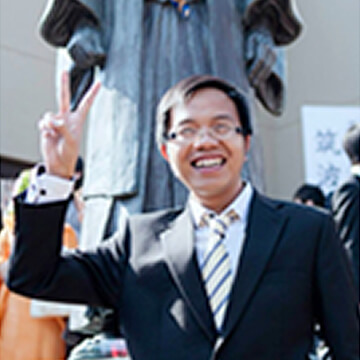
Tran Ngoc Dang (Public Health Sciences)
Five wonderful things when studying in University of Tsukuba
I first came to Japan in a Summer School 2010 as the result of collaboration activities between University of Tsukuba and my University in Vietnam. Right away, I have fallen in love with this wonderful university and I decided choosing University of Tsukuba for graduate program. It took me two year to get the MEXT scholarship and in 2012 I officially became master of Public Health student in Medical Sciences Program. Since 2012 up to now, my journey in Japan has been three years with a lot of wonderful things. Therefore, it is my pleasure to share with you the five most wonderful things which I experienced in here, University of Tsukuba ...
1. Nature beauty: Tsukuba is a science city with a lot of green space and fresh air. In addition, it is located very near Tokyo (i.e. only one hour by TX express train). So it is a convenient place for studying and living. More ever, the seasons in Tsukuba are extremely beautiful. I enjoyed snow in winter, the sakura (cherry blossoms) in spring as well as momiji (maple leaves) in the autumn. Needed to mention that, Tsukuba mountain and Ushiku Daibutsu are places within or near Tsukuba city which “must see” one time in life.
2. Academic environment: One of the unique of Medical Sciences Program is the simultaneous course work and lab work curriculum. The course work helped me to improve fundamental knowledge in Public Health Sciences such as epidemiology, environmental health, biostatistics, etc,... Whereas, participating in lab work was valuable experience. I had a chance to learn lab techniques with advanced machines such as real time PCR, Gene Sequencing machine which I rarely likely have a chance to use in my own country.
3. Scholarship opportunities: I got MEXT scholarship in 2012 for my two years master degree. Luckily, in 2014, I was successful to extend MEXT scholarship for my three years PhD program. All thank to the MEXT scholarship, my dream for studying in graduate school in Japan had been came true. As far as I have found that Tsukuba university offered to students (specially for international students) a huge sources of scholarship such as MEXT, Tsukuba scholarship, JASSO Honors scholarship, scholarship through private foundations, to name but a few... So, let make your dream come true!
4. Library systems: With Tsukuba university computer system, I am able to read nearly all the well-known peer review journal in medical sciences field (Nature Genetics, NEJM, Environmental Health Perspectives, International journal of Epidemiology etc,... ). In addition, there are very nice libraries in Tsukuba university for example Central Library, Medical Area Library. I spent comfortable days studying in these libraries.
5. Friendly Japanese friends: Japanese friends are great. Every new international student will be assigned a Japanese tutor. During my two years master program, my tutor helped me so much. She instructed me lab work techniques and sometime took me to sightseeing, shopping, partying. Japanese Professors are great too. They are not only my teacher but also my friendly friends. I received a lot of useful advice from my Professors. After graduation, I will come back to Vietnam and continues my work as a lecturer in the University of Medicine and Pharmacy, Ho Chi Minh city. I believe that valuable knowledge and experiences which I gained when studying in Tsukuba will help me much in the future career. The slogan of University of Tsukuba is “Imagine The Future”. So, Let’s “Imagine The Future” together!
